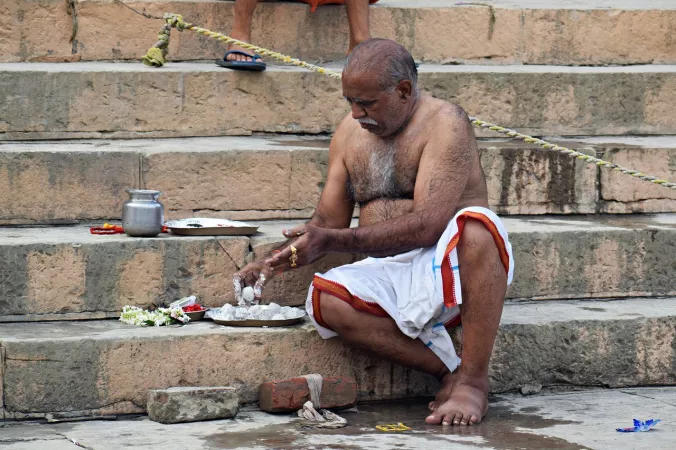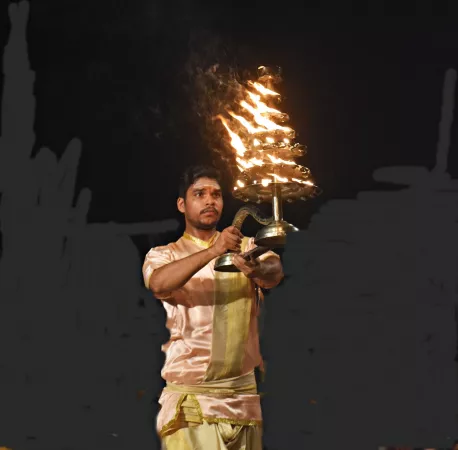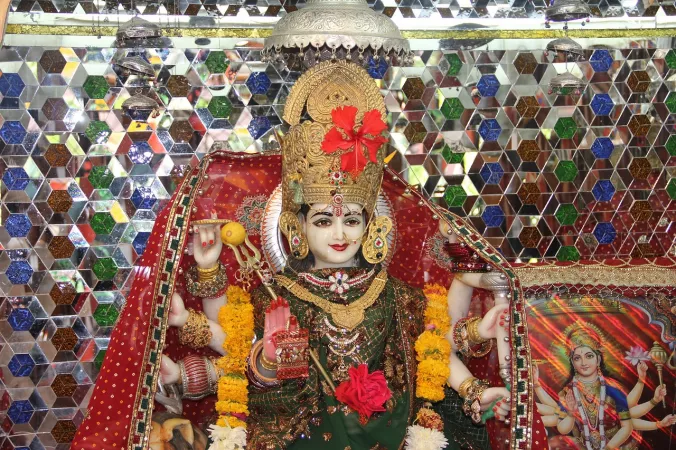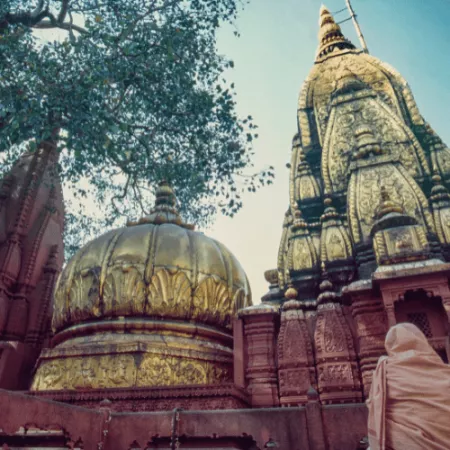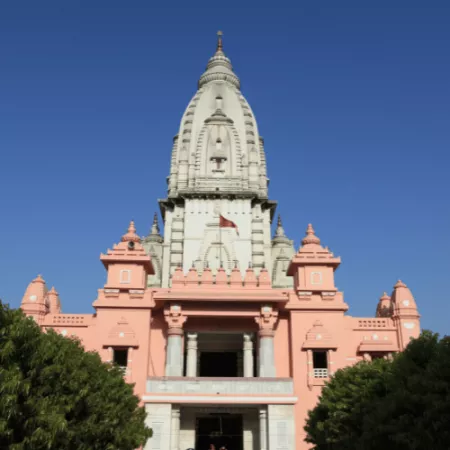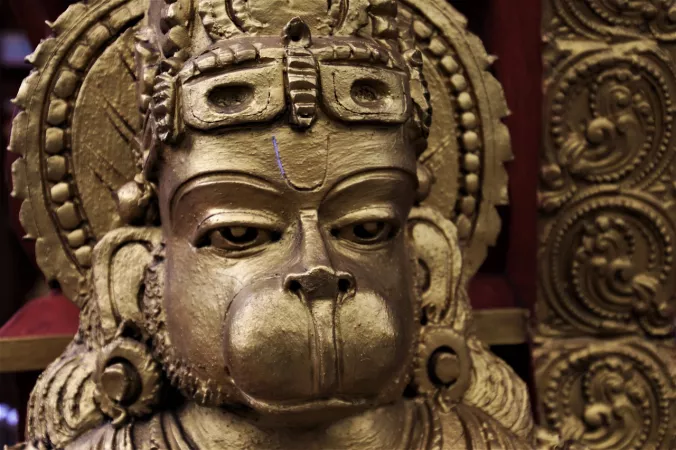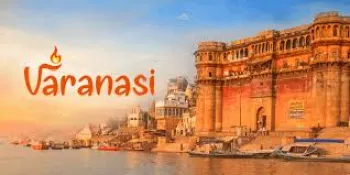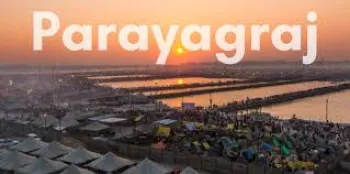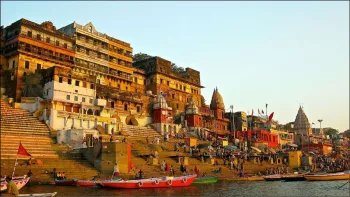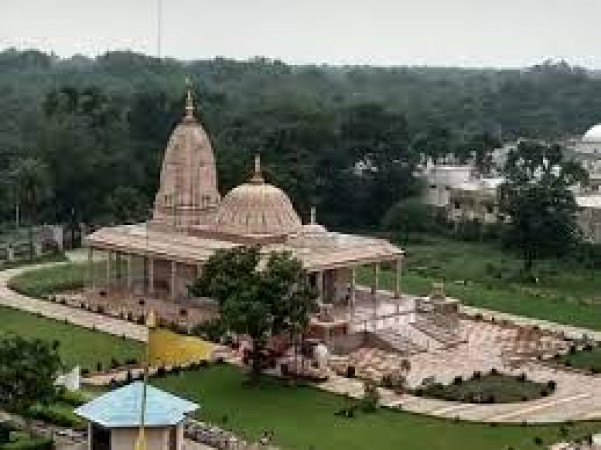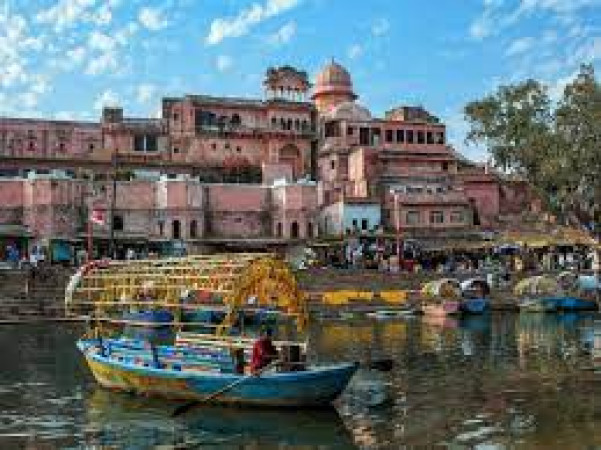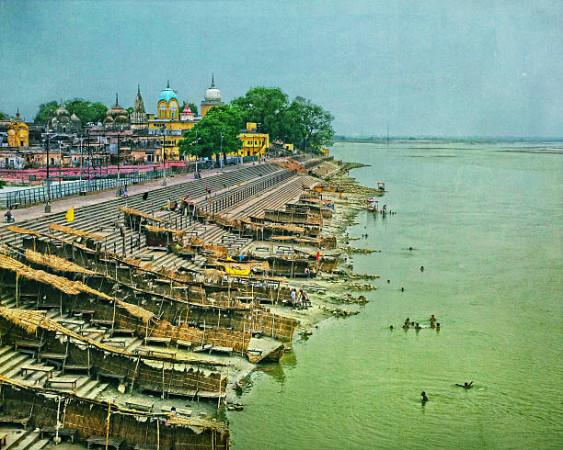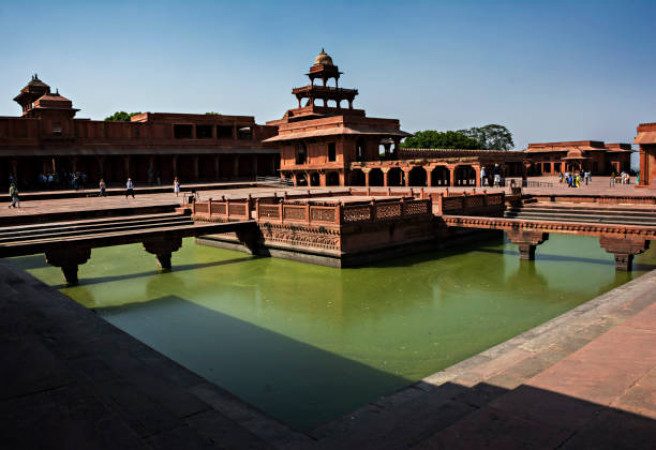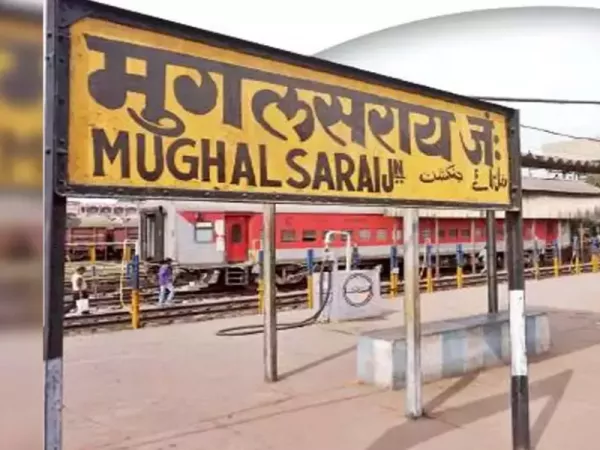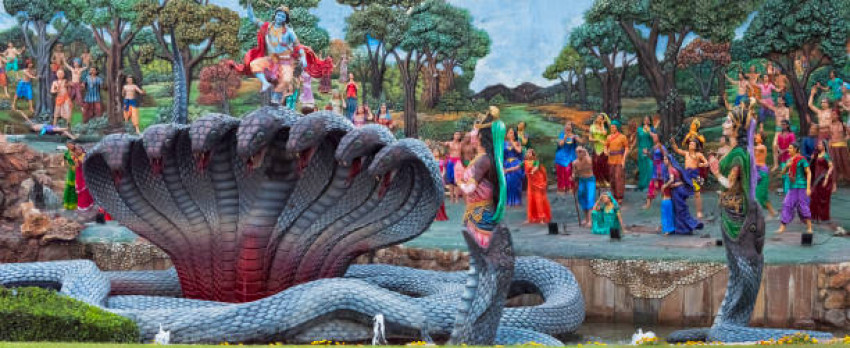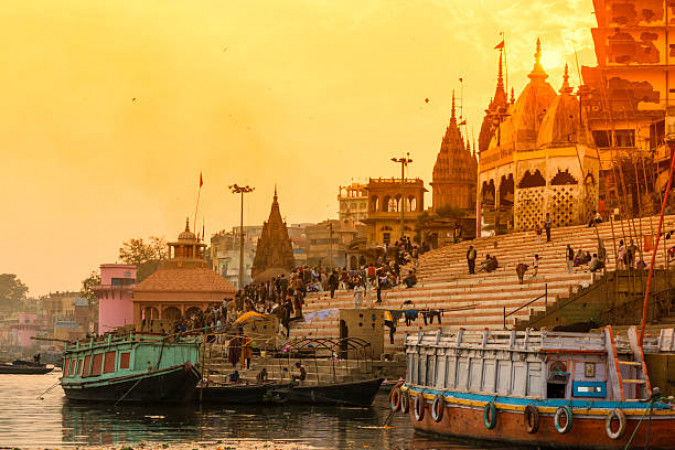
Varanasi
Duration
2 to 4 Days
2 to 4 Days
Best time to visit
Feb-Mar, Oct-Nov
Feb-Mar, Oct-Nov
Theme
Religious, Heritage
Religious, Heritage
Varanasi Travel Guide
Varanasi, one of the oldest continuously inhabited cities in the world, is a spiritual hub located on the banks of the River Ganges in India. Known for its ancient temples, winding alleys, and bustling ghats, Varanasi holds immense cultural and religious significance for Hindus. The city is famous for its Ganga Aarti ceremonies, where priests perform rituals to honor the river at sunrise and sunset.Top Attractions in Varanasi
- Dashashwamedh Ghat
- Kashi Vishwanath Temple
- Sarnath
- Assi Ghat
- Manikarnika Ghat
Varanasi is Famous for
Spiritual enlightenment and ancient temples.Top Attractions in Varanasi
- Explore the narrow lanes of the old city
- Witness the Ganga Aarti ceremony at Dashashwamedh Ghat
- Boat ride on the River Ganges
- Visit the Ramnagar Fort
- Experience the local street food
What's Great about Travelling to Varanasi?
- Unique cultural experiences
- Spiritual enlightenment
- Historical significance
What's Not So Great about Travelling to Varanasi?
- Can be crowded and chaotic
- Intense heat during summers
- Varied sanitation levels
Travel Tips for Varanasi
- Respect local customs and traditions
- Be cautious of scams
- Dress modestly, especially when visiting temples
- Drink bottled water and eat at clean establishments
Important Varanasi trip information
- Ideal Duration: 2-3 days
- Best Time to Visit: October to March
- Nearby Airports and Railway Stations: Lal Bahadur Shastri Airport, Varanasi Junction
Top 7 Places to visit in Varanasi
Per Person
19,800
*EXCLUDING APPLICABLE TAXES 4.8 Ratings
( 37 Reviews )
( 37 Reviews )
Per Person
12,500
*EXCLUDING APPLICABLE TAXES 4.8 Ratings
( 37 Reviews )
( 37 Reviews )
Per Person
8,900
*EXCLUDING APPLICABLE TAXES 4.8 Ratings
( 37 Reviews )
( 37 Reviews )
Per Person
18,900
*EXCLUDING APPLICABLE TAXES 4.8 Ratings
( 37 Reviews )
( 37 Reviews )
Per Person
8,800
*EXCLUDING APPLICABLE TAXES 3.9 Ratings
( 74 Reviews )
( 74 Reviews )
Per Person
13,500
*EXCLUDING APPLICABLE TAXES 4.8 Ratings
( 37 Reviews )
( 37 Reviews )
FAQ's on Varanasi
Q1: What is the best time to visit Varanasi?
The best time to visit Varanasi is during the winter months from November to February when the weather is pleasant and ideal for sightseeing and outdoor activities. Avoid the summer months as temperatures can soar, making it uncomfortable for exploring the city. The monsoon season from July to September can also bring heavy rains, impacting travel plans. Additionally, visiting during festivals like Diwali or Dev Deepawali can provide a unique cultural experience.
Q2: Do I need a visa to travel to Varanasi?
Travelers to Varanasi, India, require a valid visa. Visitors must apply for an e-Visa or a traditional visa through the Indian embassy or consulate before their trip. Some nationalities may be eligible for visa-on-arrival or visa-free entry, so it's essential to check the specific requirements based on your country of origin before traveling to Varanasi.
Q3: What are the must-visit attractions in Varanasi?
Varanasi is known for its spiritual significance and historic charm. Must-visit attractions include the ghats along the Ganges River, such as Dashashwamedh Ghat and Manikarnika Ghat, where ancient rituals and ceremonies take place. The Kashi Vishwanath Temple, Sarnath (where Buddha gave his first sermon), and the Banaras Hindu University are also popular sites. Taking a boat ride along the Ganges during sunrise or sunset offers a unique perspective of the city's vibrant culture.
Q4: Is Varanasi a safe place to travel?
Varanasi is generally safe for tourists, but it's essential to remain vigilant, especially in crowded areas and around the ghats. Avoid walking alone late at night and be cautious of scams targeted at visitors. Respect local customs and traditions to ensure a smooth and safe travel experience. It's advisable to keep valuables secure and be aware of pickpockets in busy areas.
Q5: What is the local currency in Varanasi and can I use credit cards?
The local currency in Varanasi is the Indian Rupee (INR). While credit cards are accepted at some hotels, restaurants, and larger stores, it's recommended to carry cash for smaller purchases and when shopping at local markets. ATMs are widely available in the city for convenient cash withdrawals, but it's advisable to inform your bank of your travel plans to avoid any payment issues.
Q6: What is the local cuisine like in Varanasi?
Varanasi offers a diverse culinary experience with a mix of vegetarian and non-vegetarian dishes. Try local specialties like chaat, kachori sabzi, and the famous Benarasi paan. Lassi (a traditional yogurt-based drink) and various sweets like malaiyo and rabri are popular desserts. Be mindful of hygiene standards when dining at local eateries and opt for bottled water to stay safe. Vegetarian options are abundant due to the city's religious significance, but non-vegetarian dishes are also available at select restaurants.
Q7: What transportation options are available in Varanasi?
Transportation options in Varanasi include auto-rickshaws, cycle rickshaws, and taxis for short-distance travel within the city. Hiring a boat for a river cruise along the Ganges is a popular way to explore the ghats and witness daily rituals. Public buses and shared jeeps are available for inter-city travel, while car rentals with drivers can be arranged for longer journeys. Walking is also a viable option for exploring the narrow lanes and bustling markets of Varanasi, but be prepared for crowded streets and varying road conditions.
Q8: Are there any cultural norms or etiquette I should be aware of when visiting Varanasi?
When visiting Varanasi, it's important to respect local customs and traditions. Dress modestly, especially when visiting temples or religious sites, and remove your shoes before entering sacred places. Avoid public displays of affection and be mindful of cultural sensitivities. Greeting locals with a respectful "Namaste" is appreciated, and asking permission before taking photographs of individuals is courteous. It's customary to bargain at markets and street vendors, but do so respectfully. Participating in local rituals or ceremonies should be done with reverence and following any guidelines provided by locals or tour guides. Embrace the spiritual essence of Varanasi with an open mind and heart.
Q9: I am a travel agent. How can I buy travel leads of Varanasi?
Register yourself as a travel agent at agents.tripclap.com and then you can buy travel leads to Varanasi once your account is approved. For more details contact our support team at +91-8069186564 or support@tripclap.com
